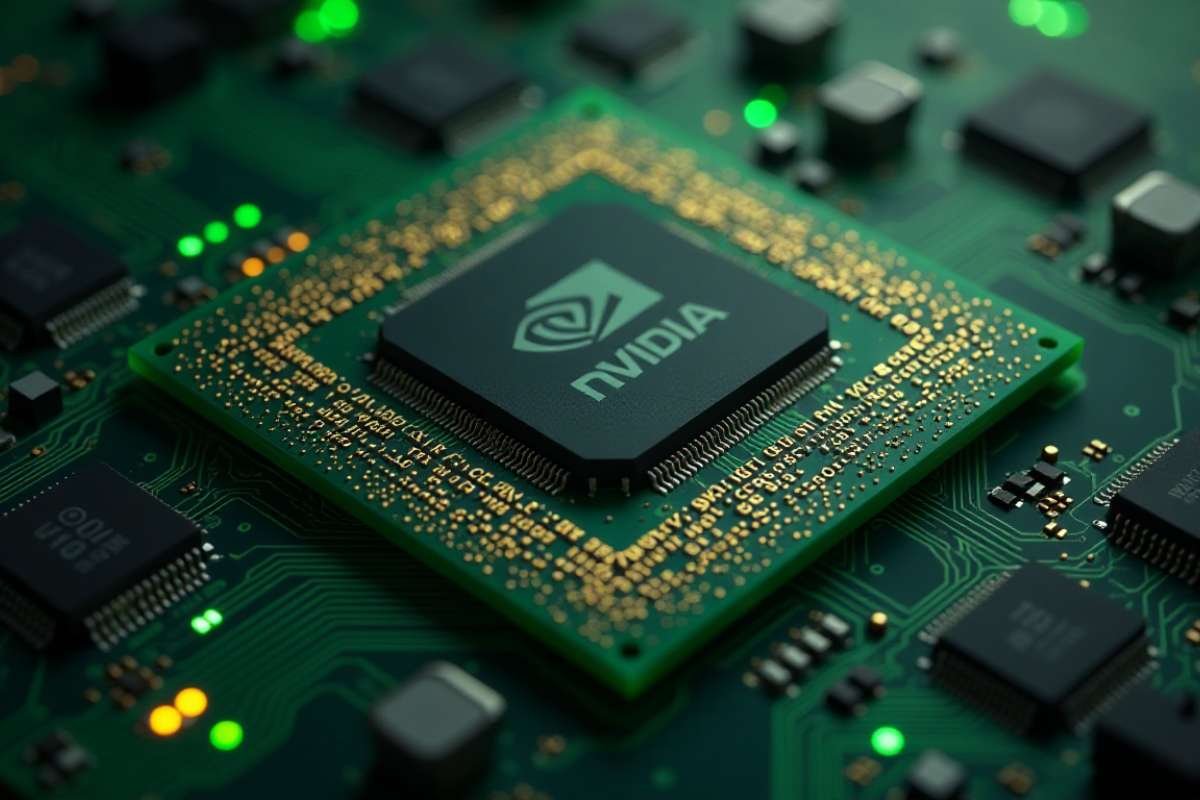In a significant reversal, Nvidia has received clearance from U.S. regulators to resume selling its Nvidia H20 chips to China. The approval comes after months of export restrictions aimed at curbing China’s access to cutting-edge U.S. technology. The H20 chips, specifically designed to comply with U.S. export limits, will now be shipped to Chinese customers, with licenses already under application, according to Nvidia.
The decision follows private discussions between Nvidia CEO Jensen Huang and high-ranking U.S. officials, including a meeting with President Trump. Huang reportedly emphasized China’s critical role in the global AI ecosystem and stressed the importance of continued market access for U.S. companies. China accounts for approximately 13% of Nvidia’s annual revenue and houses nearly half the world’s AI researchers.
Export restrictions had caused Nvidia to lose billions in potential revenue, with shipments of Nvidia H20 chips halted for over a quarter. The renewed access is expected to significantly improve the company’s short-term financial outlook, helping recover some of the $8 billion in missed opportunities linked to earlier curbs.
Huang Dismisses Military Concerns, Reaffirms Global Tech Leadership
Amid renewed geopolitical scrutiny, Nvidia CEO Jensen Huang has sought to reassure U.S. lawmakers that its technology, including the Nvidia H20 chips, is unlikely to be misused by China’s military. In an interview with Bloomberg, Huang stated that Chinese military entities are “unlikely to use U.S. AI chips” due to operational risks and tight oversight.
Huang argued for a broader vision: making U.S. AI technology the global standard, akin to the U.S. dollar. He warned that restricting exports could backfire by encouraging countries to develop and adopt rival platforms, weakening American influence in AI development. “We should want our technology to be everywhere,” he said, urging Washington to balance security concerns with long-term competitiveness.
However, not all lawmakers are convinced. A bipartisan group of senators has urged Huang to avoid engaging with Chinese companies linked to military or intelligence work. These concerns reflect ongoing debates in Washington about balancing economic interests with national security.
Market Reactions and Geopolitical Implications
Nvidia’s return to the Chinese market, especially with the Nvidia H20 chips, is seen by analysts as a pragmatic adjustment in U.S. trade policy, signaling that some flexibility remains amid rising tensions. While top-tier chips like the H100 and A100 remain restricted, the approval of the H20 line suggests a more nuanced stance on tech exports.
China, meanwhile, continues to invest heavily in domestic chipmaking through companies like Huawei and Cambricon, in a bid to reduce dependence on U.S. technology. Past export bans have only accelerated this push, with new Chinese-developed AI models and chips entering the market.
Investors reacted positively to the developments, anticipating renewed demand from China to boost Nvidia’s quarterly performance. The company is also planning a high-profile media event in Beijing on July 16, underscoring its long-term commitment to the Chinese market and signaling optimism about future cooperation.
Nvidia’s restored ability to sell Nvidia H20 chips to China marks a pivotal moment in the ongoing tech tug-of-war between Washington and Beijing. While concerns over national security remain, the move reflects a broader strategy to maintain U.S. leadership in global AI innovation. For Nvidia, it’s not just a business win—it’s a signal that America is willing to lead by engagement, not just restriction.
Visit CIO Women Magazine For The Most Recent Information.









